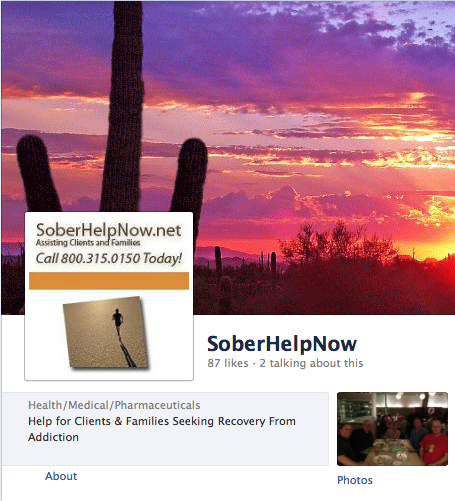 SoberHelpNow services include addiction family support for the families of clients referred to treatment absolutely free of any charge. Getting an assessment of the client’s needs and referring and placing them to a treatment center is but a beginning. SHN then works with the family to address any complicating factors on their end of this.
SoberHelpNow services include addiction family support for the families of clients referred to treatment absolutely free of any charge. Getting an assessment of the client’s needs and referring and placing them to a treatment center is but a beginning. SHN then works with the family to address any complicating factors on their end of this.
This process can be difficult, as the active addiction has created a lot of residual hurt feelings, damage to trust, and a host of other problems. Addiction has torn a path of destruction through the family, and everyone to some degree or another has been affected. What also becomes prevalent is that there has been a certain level of enabling occurring as well. This is not an assessment of blame, it is identification of a role.
Enabling is a word thrown around quite commonly in today’s society. Unfortunately, it is mostly used only superficially. The problem is that it remains a socially acceptable behavior. It’s seen as the right thing to do. After all, we would do anything for our loved ones. We love them, and want to see them well and happy. However, this role is harmful for everyone involved, and that’s just the tip of the iceberg. To give a simple definition:
Enabling is doing something for someone they should be doing for themselves.
Nothing earth-shattering there, right? Here’s another one, a bit less palatable, yet true in my experience:
Enabling is the number one environmental factor of addiction, and is often an addiction itself.
Now that’s a tough one! Many families look at me like I have three heads when I make that statement to them. Just a minute sir! We have jobs, we have homes, we don’t lie, cheat and steal! We’re not throwing our lives down the tubes with drugs! All true, perhaps, and one of the reasons enabling is still socially acceptable – it looks like a normal reaction. But it’s just as deadly as active addiction, and not just for the addict, and it must change if there is to be any peace for the enabler of an addict. As part of a good treatment program and ongoing maintenance of their recovery, the addict will be asked to look at taking responsibility, initially for their addiction, and ultimately for the lives. Full responsibility. Even though it is true that the active addict is for all intents and purposes insane, and as such will do things outside of their immediate control, they are still responsible for all of those things. They did them. It’s isn’t who they are, it’s what they’ve done, and there are consequences all all behavior, good or bad. The enabler has to consider taking full responsibility for their mistakes as well. In fact, nothing short of this will do.
But taking responsibility in the form of admission is not enough, there must also be attendant action to repair the wreckage of the past, or it doesn’t mean anything and will likely not work. For the enabler, this means they will have to do one of the toughest things in their life: say no – and back it up. Now, most all the families I’ve worked with in the long term drug rehab and alcohol treatment industry have gotten to the say no part. Especially by the time they got to these programs, year long rehabs. They’ve been through the others, and now they’re just plain disgusted. They still love the addict of course, but they’re as angry as can be with them. This anger is not recovery from enabling. It’s simply anger, and it’ll dissipate over time. That anger and disgust does serve the purpose of helping the family’s decision to only support the addict with treatment, but it will wear off, and usually gives way to guilt. Guilt makes for more enabling.
There is another shocking thing I’ve observed in my years in the drug treatment industry, which I think speaks strongly about the seriousness of the sickness of enabling. Like addiction, I have watched many enablers go through extreme withdrawal, initially after admission of their loved one into treatment, and especially after the client becomes rooted in to the process. It can get quite crazy, manifesting as what the industry calls “helicopter families” and behavior that can be circumventive to the treatment process. In fact, in the year long treatment setting, out of the people who failed to finish the program, roughly 70% are what I call “family-assisted sabotage.” The addict doesn’t want to do the tough work needed to get and stay sober, so they manipulate the family through communication outside the facility, some overtly, others more subtly, and the family buys in and starts interfering with the treatment process and eventually pulls them. I always found it uncanny that a family would pay us thousands of dollars to help and then unwittingly make sure the entire investment was wasted through constant questioning of the process, uninformed or misinformed judgment of it, and many other forms of subversive behavior that result in no gain. Please understand I realize there are many reasons for treatment failures, but this one is huge. This is a fear-base characteristic that is very similar to the fear the family experienced when the addict was using.
In their defense, due to the center being ultra long term and designed for chronic relapse clients, the families I normally dealt with have been through so many treatment centers they came to us very weary and leery, as well as pretty badly beaten up by addiction. They were skeptical, and who could blame them. It’s been a long, hard, road filled with disappointment, setbacks and broken promises. There is a solution.
I know some of you reading might be saying to yourselves, “we already know all this stuff, we’ve heard it a hundred times.” I understand. In fact, that’s what I hear quite often from addicts too. I will say the same to you as I do to them: knowing it doesn’t mean permanent recovery. Internalizing the solution in a pronounced way by practicing on a daily basis it means everything. The 12 steps work, along with a support system of people who have gone before them.
Yes, this where I mention Al-Anon Family Groups. The 12 steps aren’t just for the addict, they are absolutely necessary for the people affected by the addict as well for ongoing addiction family support. SHN also provides support in several ways as well. From a supportive voice on the phone during a tough time, to recommending a good therapist to work with those affected, to accountability help along the way. We’re here to support you. I look forward to working with you.
Curt

Speak Your Mind
You must be logged in to post a comment.